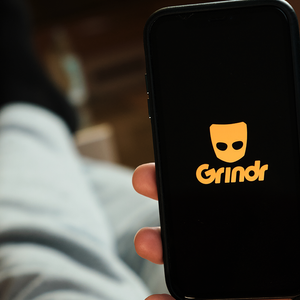Even as YouTube faces the threat of losing hundreds of millions of dollars in advertising dollars for allowing hate speech to be monetized, it's unclear how much YouTube has already made from advertising it ran against volatile video over the years.
Many vehemently anti-LGBT videos still appeared this month with advertising shown before or alongside content on the platform. Meanwhile, YouTube's Restricted Mode continues to sweep up benign content on the channels of LGBT creators and hide it.
Over the past several weeks, such major advertisers as Johnson & Johnson, PepsiCo and McDonald's pulled out of advertising on YouTube, something that could cost parent company Google as much as $750 million, according to Fortune. Nomura Instinet analysts have lowered Google's revenue estimates under $10 billion, crediting the advertising controversy surrounding YouTube.
On Thursday, YouTube announced new rules that allow only those content creators who have surpassed 10,000 views on their channel to apply for monetization, saying it will help safeguard against content that violates its "community guidelines."
Google spokespeople told The Advocate before the change that the concerns of advertisers will be addressed. "We've begun an extensive review of our advertising policies and have made a public commitment to put in place changes that give brands more control over where their ads appear," read a statement from the company. "While we recognize that no system will be 100 percent perfect, we believe these major steps will further safeguard our advertisers' brands and we are committed to being vigilant and continuing to improve over time."
Some anti-LGBT video might have already been affected by the change. Video advertisement links for Musclex could be found earlier this month alongside a video by InfoWars creator Alex Jones promoting the conspiracy theory the U.S. government has been developing "gay bombs," a biological weapon to be dropped on enemies and act as a homosexual aphrodisiac, unlocking homosexual desires that will make it impossible for soldiers to fight. But ads weren't appearing on the channel on Friday.
Yet many videos with homophobic content still appear to be monetized. A search by The Advocate found Grammarly advertisements playing in advance of a video entitled "Black Leaders Pushing the Homosexual Agenda: Yesterday & Today" that labels Bayard Rustin the "#1 Race Traiter of the 20th Century." Similar ad links for companies such as Vimeo could be found beside a 52-minute Tearstojoyministries.org video entitled "The Demon of Homosexuality" promoting conversion therapy and treating gay desire as an evil spirit possessing LGB individuals that needs to be exorcised.
And controversial figures continue to see hateful videos monetized. Milio Yiannopoulos, an out blogger who made widely criticized transphobic comments and who has been permanently banned from Twitter, still maintains a YouTube channel, where many videos garner hundreds of thousands of hits. No ads appear today. But an advertisement for Ark Encounter could be seen this week accompanying a video entitled "MILO Begins Construction on the Wall," and while that creationist attraction may be seeking out a more uniformly conservative customer base than others, the advertisement appears weeks after social conservatives condemned Yiannopoulos for a surfaced podcast interview where he seemingly defends pedophilia.
Of course, this comes while tensions remain high between LGBT advocates and YouTube thanks to persistent problems with the Restricted Mode filter, which has disproportionately impacted content produced by LGBT YouTubers. While creators of certain adult content expect the filter to impact their library, many have been shocked that settings intended to shield obscene content from children makes it impossible to view a Human Rights Campaign message of support for trans youth, an engagement video for popular YouTubers Megan Evans and Whitney Kay Bacon or a Tyler Oakley video celebrating black LGBTQ+ civil rights trailblazers.
"So many of my videos are gone," says prominent LGBT YouTuber Kingsley, whose own channel sees significant contraction when Restricted Mode turns on. "I think only two videos are visible from the last eight months: my Oscars fashion video and a video where I sorted myself into Harry Potter houses. While I understand why my Thirsty Thursday videos would be restricted (the entire premise is based on vulgar, flirtatious comments left on social media) most of my other videos are not problematic. They are topical discussions of current events, music reviews. Heck, my video playing Pokemon Go is blocked. My video trying foreign snacks is blocked. It makes no sense."
Engineers within Google have suggested the problem may be one of machine learning run amok; restrictions could be put on pornographic commentary, for example, and YouTube received a number of search requests for gay or lesbian porn, thus gays and lesbians must have something to do with porn. If ignored for a long time--this issue only prominently came to light in the past couple weeks but Restricted Mode was introduced in 2010--then data gathered by the YouTube's artificial intelligence programs could take a long time to scrub.
But the explanation doesn't completely explain how searches like LGBT, a term not generally associated with porn or problematic content, would be flagged. It also doesn't solve any financial hardship placed on LGBT YouTubers themselves. Musician Tom Goss only became aware of how broad the Restricted Mode impact was after the issue incited a public relations nightmare, but knows some popular videos generate less revenue because they have been flagged. Advertising revenue on YouTube videos often comes when advertisers bid on ads that will run with content, and Goss has been told a music video like "Bears" generates little revenue because of advertiser skiddishness about controversial content, even though the song contains no explicit content. "I'm seeing 25 of my last 61 videos as being restricted," he notes. "I didn't realize it was the much content. Much of it is me talking, or travel videos."
YouTube says the Restricted Mode sweeps videos never intended to be flagged. "The bottom line is that this feature isn't working the way it should. We're sorry and we're going to fix it," wrote Johanna Wright, YouTube vice president of product development, in a post on the YouTube Creator Blog.
In a separate post the same day, Ariel Bardin, another vice president of product management, promised a "tougher stance on hate speech" on the platform. "To protect the livelihoods of our creators and to strengthen advertiser confidence, we will be implementing broader demonetization policies around videos that are perceived to be hateful or inflammatory," Bardin writes. "This includes removing ads more effectively from content that is harassing or attacking people based on their race, religion, gender or similar categories."
In the same post, Bardin promises users who feel videos were unfairly demonetized can appeal the decision, and that such appeals will be accelerated. LGBT YouTubers have asked for a similar appeal process regarding Restricted Mode, but to date, YouTube has not established such a process and instead encouraged YouTubers to edit the videos to prompt a new review.
Videos caught by Restricted Mode still can be monetized, of course. Indeed, LGBT activist Riyadh Khalaf says many of his most successful videos get restricted but still perform well financially. Less than 2 percent of YouTube user turn Restricted Mode on, after all. "The issue is not about money, it is about principle," Khalaf tells The Advocate. "If child-friendly LGBTQ content is being deliberately or mistakenly blocked, then we have a moral and social issue. Thankfully YouTube has owned the problem, apologised and vowed to fix it."



















































































